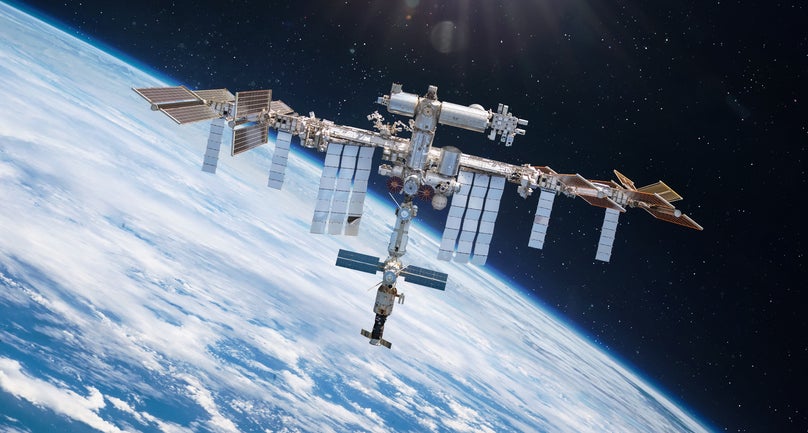
SpaceX has been selected by NASA to develop a spacecraft that will de-orbit the International Space Station in 2030, in a contract valued up to $843m, the space agency announced on Wednesday (26 June).
The news comes as the International Space Station is coming to the end of its operational life and NASA plans for a new range of commercially owned space destinations closer to home.

Access deeper industry intelligence
Experience unmatched clarity with a single platform that combines unique data, AI, and human expertise.
Elon Musk’s SpaceX has been chosen to create the US Deorbit Vehicle, which will be owned and operated by NASA.
According to the space agency, both SpaceX’s Deorbit Vehicle and the International Space Station will break apart and burn up as part of the re-entry process into the atmosphere.
The challenge for SpaceX and NASA will be to ensure no risk to populated areas during the mission.
“Selecting a US Deorbit Vehicle for the International Space Station will help NASA and its international partners ensure a safe and responsible transition in low Earth orbit at the end of station operations,” said Ken Bowersox, associate administrator for Space Operations Mission Directorate at NASA.

US Tariffs are shifting - will you react or anticipate?
Don’t let policy changes catch you off guard. Stay proactive with real-time data and expert analysis.
By GlobalData“This decision also supports NASA’s plans for future commercial destinations and allows for the continued use of space near Earth,” he added.
At the heart of growth in the space economy is a network effect focused primarily on partnerships, according to GlobalData’s Thematic Research: Space Economy 2023 report.
Although the space sector’s largest companies, such as Blue Origin and SpaceX, have the resources to enter the market independently, even they were once fledgling players, reliant on NASA to survive.
Few companies can succeed in the space economy by themselves.
Space is no longer the sole domain of governments and incumbent aerospace and defense companies. Instead, businesses that have pursued emerging opportunities gained a first-mover advantage.
SpaceX, founded in 2002, was the first private company to launch a spacecraft into orbit and return it safely to Earth.
The US company has become the dominant force in rocket manufacturing, mission operations, and satellites through its Starlink program. In H1 2023, SpaceX carried out 40 missions and has over 50 more planned for the second half of the year.
The space economy will be worth between $760bn and $1trn in 2030, according to GlobalData forecasts.







